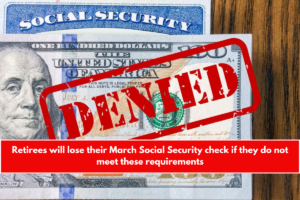With President Joe Biden signing a bill over the weekend to improve Social Security benefits for millions of public sector workers, many Americans may be wondering if they are eligible for what the White House describes as the first expansion of such assistance in two decades.
Biden signed the Social Security Fairness Act on Sunday, eliminating two decades-old provisions, the Windfall Elimination Provision (WEP) and the Government Pension Offset (GPO), which reduced Social Security benefits for retirees with pension income.
“The bill I’m signing today is about a simple proposition: Americans who have worked hard all their lives to earn an honest living should be able to retire with economic security and dignity,” Biden said at a press conference.
Biden estimated that the bill would result in an average monthly increase of $360 for certain public employees, their spouses, and survivors. The outgoing president stated that more than 2.5 million Americans will receive a lump sum payment of “thousands of dollars” to compensate for benefits they should have received last year.
The bill, which passed the House of Representatives in November and was approved by the Senate 70-26 last month, is expected to cost $196 billion over the next ten years, according to the Congressional Budget Office.
The move comes as Social Security recipients will receive a 2.5% cost-of-living adjustment (COLA) in 2025.
Here’s what you should know about the bill and who will be eligible for the increased benefits.
Who will qualify for the improved Social Security benefits?
The provisions affect nearly 3 million public-sector workers, including police officers, firefighters, nurses, postal workers, public school teachers, and government employees.
The U.S. Department of Labor and the University of Pittsburgh’s Graduate School of Public & International Affairs define public sector employees as anyone who works for the government, a government-funded organization, or a school.
The bill is “a great gift for our retired firefighters, police officers, postal workers, teachers, and others who for years contributed to Social Security, but are now being penalized because of their time in public service,” Senate Majority Leader Chuck Schumer, D-N.Y., said last month. “That is unfair. It is deeply unfair. It contradicts the American ideal of working hard, contributing, and retiring comfortably.
Prior to Biden’s signature, the WEP reduced Social Security for those who earned “non-covered” pension income from their jobs (which includes pensions from state and local governments as well as non-U.S. employers), while the GPO reduced spousal or survivor benefits when an individual’s pension is non-covered.
Why are some against the Social Security Fairness Act?
Opponents of the bill, including Sen. Chuck Grassley, claim that it would unfairly benefit some workers while increasing hardship for others on Social Security.
“Let’s be crystal clear: this bill would increase unfairness in how Social Security benefits are calculated,” Grassley, R-Iowa, said in a Senate floor speech last month.
Critics argue that the bill could jeopardize the entire Social Security fund. Sen. Thom Tillis, R-N.C., stated that the Social Security trust fund is less than ten years away from becoming insolvent, and that the bill will accelerate this process.
What is next for the Social Security Fairness Act? When could increased benefits come?
The Social Security Administration (SSA) stated that it is “evaluating how to implement the Act” and “will provide more information as soon as available.”
For those who have previously applied for Social Security benefits and are partially or completely offset, the SAA states, “You do not need to take any action except to verify that we have your current mailing address and direct deposit information if it has recently changed.”
If you have not previously filed for Social Security benefits and want to do so, the SAA says you can do so online or by scheduling an appointment.













Leave a Reply